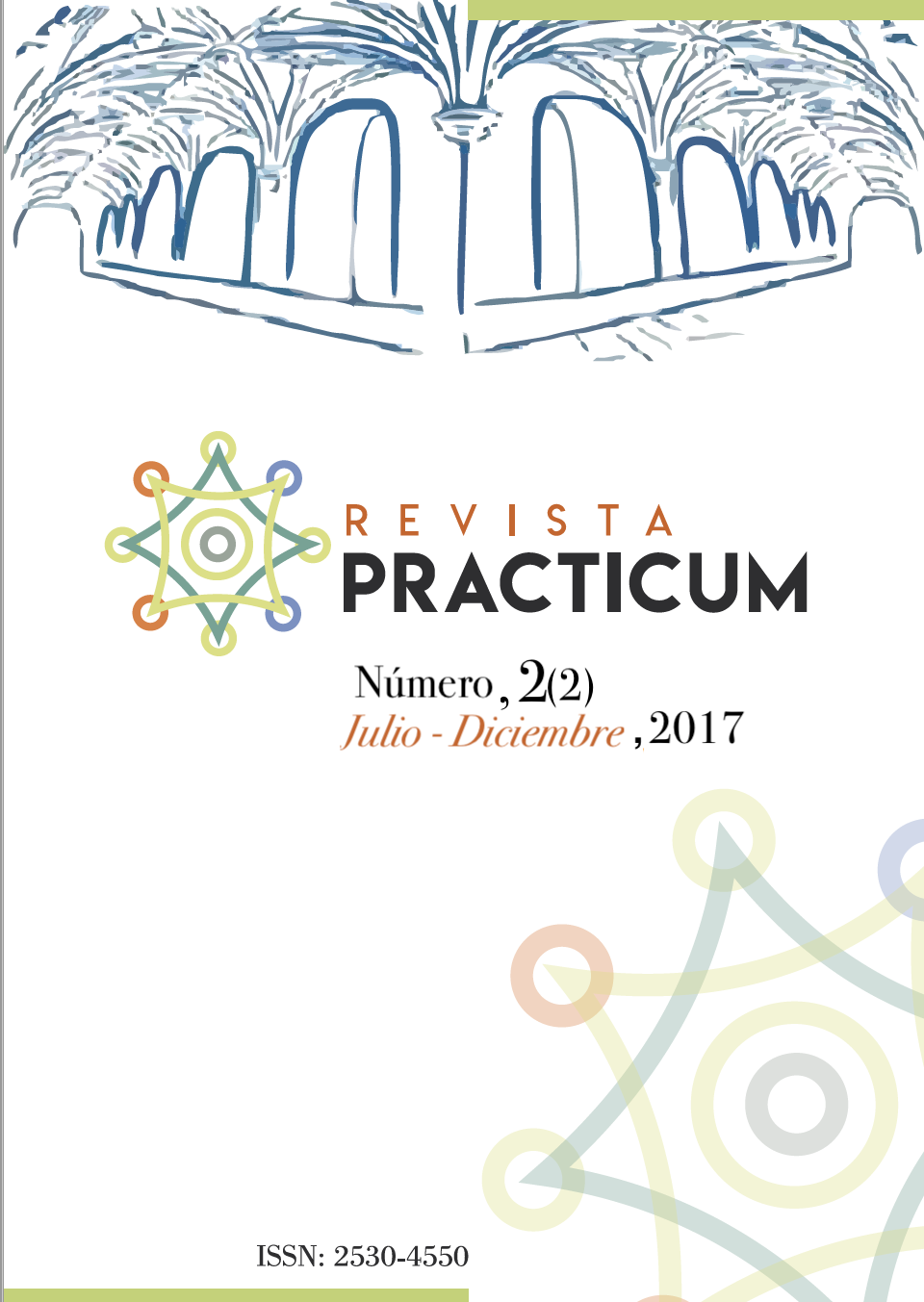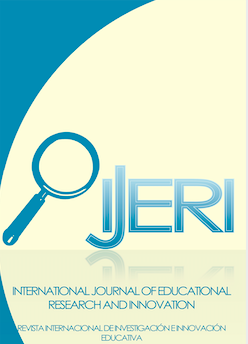Inclusion of digital technologies in education: (re) construction of professional teacher identity in practice.
DOI:
https://doi.org/10.24310/RevPracticumrep.v2i2.9855Keywords:
Information and Communication Technologies, professional teacher identity, pedagogical renewal, classroom practice, innovation.Abstract
Inclusion of Information and Communication Technologies in education has fostered some paradigm reconstruction dynamics, with an impact on the professional identity of teachers, so its necessary to reflect on the implications of teaching methods, understanding how schools are responding to the integration of ICT and how teachers have renewed their practices. The information presented is part of a study carried out on a region of Portugal, involving about 2000 teachers of the 1st Cycle of Basic Education. Two questionnaires were applied: one to understand the relationship with technology in pedagogical practices and another focused on good practices. The results show that there is a dynamic that drives a positive movement in the use of digital tools to which teachers and school begin to respond. Also, the inclusion of digital technologies stages steps for pedagogic recreation, so there are schools and teachers still in a basic level of discovery adapting the traditional methodology to the new resources and others, already in a stage of change, of recreation of educational practices with new methodologies. It concludes a clear vision of the need for renewal of the professional identity of teachers in the digital age.
Downloads
Metrics
References
Almeida, M. & Valente, J. (2011). Tecnologias e currículo: trajetórias convergentes ou divergentes? São Paulo: Paulus.
Area, M. (2007). A escola no labirinto tecnolóxico. En Cid, J.M & Rodríguez, J. (Org.). A Fenda Dixital e súas implicacións educativas (pp. 39-66). Galicia: Escola Nova Galega.
Cabero, J. & Román, P. (2006). La formación en Internet: variables críticas. E-actividades. Un referente básico para la formación en internet (pp. 11-22). Sevilla: Eduforma.Costa, F. (Coord.) (2008). Competências TIC. Estudo de Implementação (Vol.I). Lisboa: GEPE/ME. https://goo.gl/Lh9tZt.
Felizardo, M. H. & Costa, F. (2012). A formação de professores e a integração das TIC no currículo: com que formadores? En J. Matos (Coord.). I Congresso InternacioalTIC e Educação (pp. 93 – 107). Lisboa: Instituto da Educação – Universidade de Lisboa.
Gallego-Arrufat, M.J. & Raposo-Rivas, M. (coords.). (2016). Formación para la educación con tecnologías. Madrid: Pirámide.
Gomes, A.; Escola, J. & Raposo-Rivas, M. (2016). As TIC na escola e um novo Paradigma Pedagógico. En Escola, J., Raposo-Rivas, M., Aires, P., Martínez-Figueira, M.E. (coord.). Experiencias de investigación e intervención educativa con las TIC (pp. 13-22). Almería: Procompal.
INTEF, Instituto Nacional de Tecnologías Educativas y de Formación. (2017). Marco Común de Competencia Digital Docente. España: Ministério de Educación,Cultura y Deporte.
Lopes, A. (2002). Profissão e profissionalidade: o caso do 1º Ciclo. En O particular e o global no virar do milénio (pp. 71 – 77). Lisboa: Edições Colibri e Sociedade Portuguesa de Ciências da Educação.
Lopes, N.; Escola, J.; Raposo-Rivas, M. (2015): O QIM como recurso no ensino básico do norte de portugal: Estudo de boas práticas. Universitas Tarraconensis,2, 7-27. https://goo.gl/TepTgf Matos, J. (Coord.) (2012). I Congresso Internacioal TIC e Educação. Lisboa.: Instituto da Educação – Universidade de Lisboa.
Monereo, C. & Fuentes, M. (2005). Aprender a buscar y seleccionar en Internet. In Internet y competencias básicas: aprender a colaborar, a comunicarse, a participar, a aprender (pp. 27-50). Barcelona: Graó.
Ministério da Ciência e da Tecnologia (1997). Livro Verde para a sociedade da Informação em Portugal: Missão para a Sociedade da Informação. Lisboa: M.S.I.
Moore, A. (2004). Diseño de comunidades de aprendizaje avanzado – la historia del Virginia Tech. En Epper y Bates (Orgs.). Enseñar al profesorado cómo utilizar la tecnología – Buenas prácticas de instituciones líderes (pp. 101-115). Barcelona: Editorial UOC.
Pink, D. (2006). A nova inteligência. Alfragide: Academia do livro.
Ponte, J. & Serrazina, L. (1998). As Novas Tecnologias na Formação Inicial De Professores. Lisboa: Departamento de Avaliação.
Quadros-Flores, P. (2016). A Identidade Profissional Docente e as TIC: Estudos de Boas Práticas no 1º Ciclo do Ensino Básico na região do Porto. Berlin: Novas Edições Acadêmicas.
Ramos, J., Carmo, M., Fernandes, I., Leask, M. Y Younie, S. (2001). A Escola que aprende: um estudo múltiplo de casos no âmbito da utilização educativa das TIC em escolas europeias. O caso português. Revista Inovação – Novas Tecnologias na Educação, 14(3) 97-118.
Sancho, J. (2006). De tecnologías de la información y la comunicación a recursos educativos. Tecnologías para transformar la educación, (pp. 15-49). Madrid: AKAL.
Silva, M. (2006). Sala de aula Interactiva. Rio de Janeiro: Quarteto Editora.
Tardif, J. & Faucher, C. (2010). Um conjunto de balizas para a avaliação da profissionalidade dos professores. O pólo de excelência – Caminhos para a avaliação do desempenho docente (pp. 32- 53). Maia: Areal Editores.
Downloads
Published
How to Cite
Issue
Section
License
Acceptance of the work implies that the author grants Revista Prácticum the exclusive rights to reproduce, distribute and sell his or her work worldwide, both in digital and paper formats, CD-ROM, etc.
Likewise, the authors shall grant Revista Prácticum the rights of dissemination, public communication on the Internet and IT networks, data buses, as well as any other portals or electronic devices for online consultation of its contents and extracts, under the conditions of the portal, repositories or databases where the work is stored.
Revista Prácticum allows authors to publish and disseminate their articles and works on their personal websites, research teams, institutional repositories and scientific databases. All this in accordance with the Creative Commons 4.0 License









8.png)








